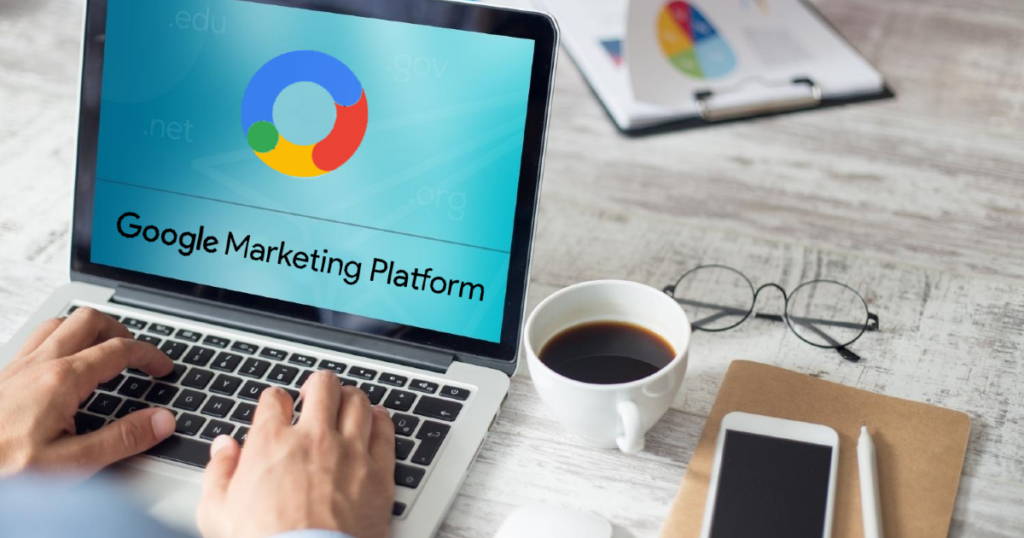
Google Marketing Platform combines Google Analytics 360 Suite and DoubleClick into a single platform. Google has made it clear that its mission is to provide a seamless and consistent marketing experience. It also offers free marketing tools for small businesses and advanced solutions for enterprises.
Marketers and businesses may monitor activity across all media platforms, deduplicate conversions, establish audiences, produce ad trackers, and host creatives using Google Marketing Platform.
The platform features seven key elements, which includes Analytics, Data Studio, Optimize, Surveys, Tag Manager, Display & Video 360 and Search Ads 360.
The integration of DoubleClick and Google Analytics 360 emphasises the need for analytics and ad campaigns to work in tandem. This means that marketers can manage, analyse and optimise their campaigns all in one place. Users get an integrated suite of tools that will provide your company with the insights needed to drive business decisions from data across multiple channels.
Google marketing platform is a powerful tool that can be customised to meet the needs of any business. For example, Google Marketing Platform integrates with Salesforce Marketing Cloud for better analytics and reporting capabilities – which in turn provide insights into how your campaigns are doing or could potentially improve them if needed. These updated solutions for data management, compatibility and exchange allow you to interact with your company’s information in any way that works best – all from a single interface.
This program offers resources to help users make the most of Google Marketing Platform. Now, as before, partners must satisfy strict criteria.
Google Marketing Platform Partners are an integral part of the Google platform. They can design, build and maintain a successful account with their diverse array tools – Analytics 360° for data analysis; Campaign Manager 360° which helps you plan out your strategies down to every detail; Data Studio where customers get all kinds information about how people respond online in real-time from survey results or cookie clicks and even Tag manager is on deck.
The Cross Device functionality allows you to see people’s journeys on your site. You can see how many times they used the website and where they are in the conversion funnel on their different devices.
For example, a user might see an ad for your product on their mobile phone. They then learn more about it on their tablet and finally make the purchase for your product from their desktop. Cross Device on Analytics will help you see the order that people typically use to view your site.
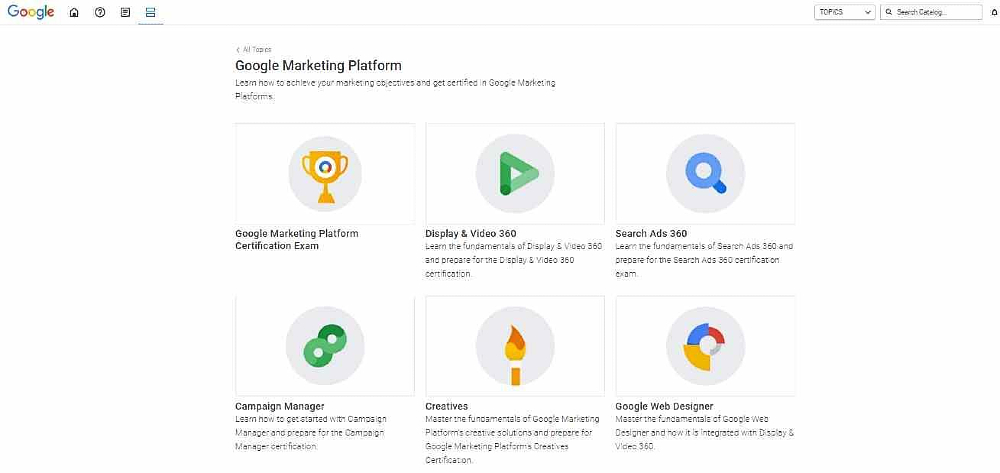
The Search Ads 360 Certification assesses basic skills in setting up Search campaigns on multiple search engines, including goals, targeting, and bid strategies; troubleshooting issues; analysing the effectiveness; and optimising campaigns for improved performance.
The Campaign Manager Certification examines planning, executing, reporting, and troubleshooting reservation purchases across partners. This metric looks at how well your site is optimised for mobile devices. It also examines ad tag delivery, measurement, and troubleshooting methods to determine whether they are effective.
The Google Web Design and Creative certification covers rich media creative setup with Google’s Web Design and Creative tools to create HTML5 and dynamic creatives. For example, creatives can be created using HTML5 formats. It also covers the integration of creative creatives with DoubleClick Studio 360, campaign management through the Google Web Designer interface, and basic performance analysis. It also evaluates how to preview, QA, and publish creatives to Campaign Manager, as well as evaluating the results of those activities.
The Display & Video 360 certification test programmatic and direct deal campaign creation, including inventory allocation, goals, budgets, targeting, and creatives. The certification also covers crucial troubleshooting, performance, and optimisation tasks and procedures.
This certification was created to recognise Analytics professionals that have demonstrated their ability to work with and employ the concepts, approaches, and tools that are addressed in this course. It is available to any individual who has completed this certification. This comprises planning and principles, as well as implementation and data collection, configuration and administration, conversion and attribution, and reports, metrics, and dimensions.
The recommended order for getting Google Marketing Platform Certification:
Thus, it’s good to start with a more basic qualification and work your way up. For example, working towards an individual qualification first, then a certification for each of the different ad platforms (search, display, and video).

This certification is definitely worth it! Google Analytics Individual Qualification and the Campaign Manager Certification are hands down necessary for any serious digital marketer. These certifications will give you a strong foundation in understanding Google Marketing Platform.
Your career will benefit from these certifications because they will provide you with a greater understanding of how data collection and analysis play into your campaigns. It is crucial that marketers understand the value of this when creating an effective campaign management strategy. Thanks to Google Analytics, marketers are able to give their marketing strategy the data that it needs.
In fact, Google’s own research shows that companies who invest in digital marketing training see up to 11% increase in revenue from their online efforts. So if you have the skills and knowledge of Google Marketing Platform under your belt then not only will you be valuable but also much more likely to get a raise.
After educating yourself on Google’s certification, we need to know which are the best certifications for a successful career in tech & digital marketing. A few examples are the Individual Qualification for Google Analytics, Campaign Manager certification, Display & Video 360 certification, and Creative certification.
The Individual Qualification for Google Analytics is geared towards those who are interested in learning how to effectively manage all aspects of SEM campaigns.
The Campaign Manager certification focuses on managing digital marketing campaigns across the search, display and video ad platforms.
Search Ads 360 certification is designed for users who want to learn about setting up Search campaigns across different search engines, assigning goals, targeting, and bid strategies, troubleshooting issues, analysing the impact, and refining campaigns for optimal performance. Appropriate for those interested in working as a paid search manager.
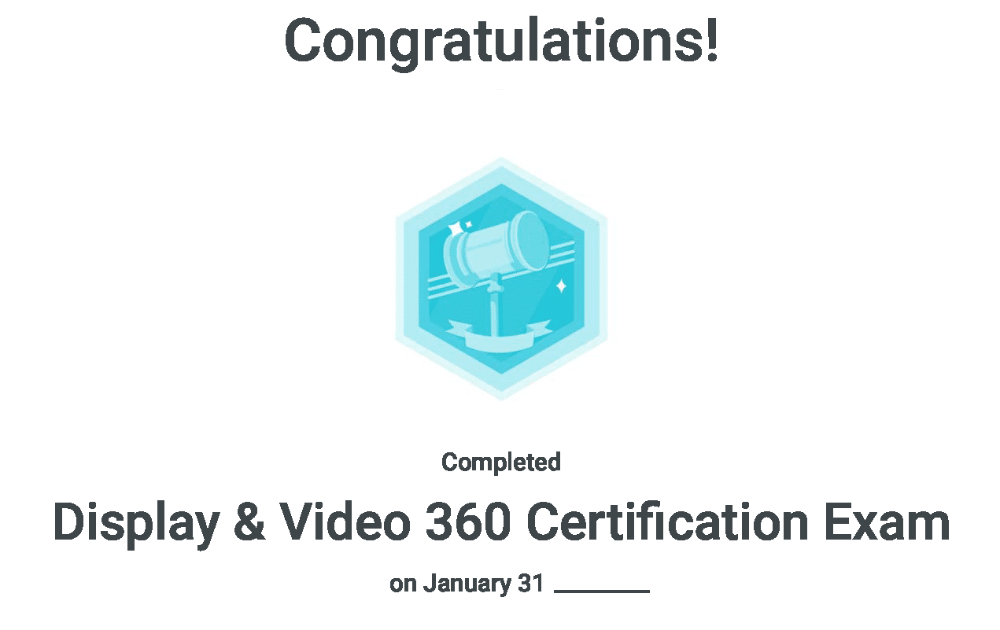
Display & Video 360 certification covers programmatic campaign creation including inventory allocation, goals, budgets, targeting (including remarketing), ad formats, delivery methods and optimisations.
The Creative certification is designed for users who want to learn how to create rich media ads in different ad formats including display video creative, native advertising creatives with advanced targeting strategies, interactive digital pre-rolls & post rolls, rich card content creation for multiple devices/engagement types (including AMP), product ads, and auto-ads.
It basically depends on what you are already doing in your career, which of the certifications would be most beneficial to have.
Google Marketing Platform Partners consists of three categories:
The advantages of being certified and becoming a partner
You’ll also receive a number of emotional returns such as:
Getting Google Marketing Platform certification is an investment in your future. It will allow you to be more knowledgeable about digital marketing, whether it is across search, display and video ad platforms or creating rich media ads of different formats on various devices. You will also become more motivated as a result of having this certification as it proves that you are capable of being a digital marketing professional. So if this sounds like the right move for you then why wait? Get started today with one of these certifications and become a partner with Google Marketing Platform.

For most people, an office is a place where they spend their days working and friendships made. Whether you work in an office or from home, there may come a day when you need to say goodbye to your co-workers. These farewell messages can be difficult to write and send because there are so many unknowns: When do I send it? What language should I use? How do I make this “mine”?
It isn’t just important for you to say goodbye, it’s also imperative that your co-workers know how much they mean to you. Saying farewell can be difficult and sometimes even awkward, but it’s necessary in order to maintain good relations with the people who were so dear and supportive to us during our time together at work.
You should say goodbye to your colleagues in person, but there may be times when you can’t make it work. This is where farewell messages come in really handy. You can write these messages for a number of reasons: If someone leaves the company or moves on to another team, then they would benefit from hearing that they’re missed. You may also want to send a message when you have to say goodbye after being assigned new tasks, because it can be difficult for your team to get accustomed to someone else taking over what you did.
There’s no hard and fast rule about sending farewell messages, but there are some things that you should consider. You can send a message anytime, but it’s best to wait until two weeks before they leave. This will give them time to prepare and say goodbye on their own terms instead of leaving things up in the air.
Sending a farewell message can be tricky, especially if you have never done it before. You want to make sure that you leave your colleague with the right impression and saying goodbye is already difficult enough. Here are some general rules about what language should go into these messages:

If you’re sending a message yourself, use ‘I’ instead of ‘we’; if it’s about someone else, don’t refer to them in the first person (use ‘they’). Be clear and concise, no one wants to read lengthy goodbye emails. Try something like this for inspiration: “Dear Jane Doe, I’m writing because I wanted to say thank you for all that you have done over the years we have worked together. I’ve really enjoyed getting to know you and am grateful for your hard work, dedication, and contributions that made our team so strong. If there’s ever anything I can do for you in the future, please don’t hesitate to let me know.”
When it comes to saying goodbye, you want your farewell message to be as personal and unique as the relationship that is ending. You should take into consideration what kind of person they are; for example, if they like humour then try incorporating some jokes or memes in the message. Here are a few ways that you can make your message more personal:

Work can be stressful, and we often find ourselves feeling drained at the end of a long day. But it doesn’t have to be this way. With some creativity and good old-fashioned politeness, you may be able to leave your colleagues with an excellent final impression that will make them feel appreciated for all they’ve done – even if there’s no hope of ever seeing each other again. It’s hard not to think about how much our work relationships affect us on a daily basis; try taking the time now to wish farewell in person before leaving or send them a message letting them know how grateful you are for their help over the years. We’re sure they’ll appreciate hearing from you one last time as well.
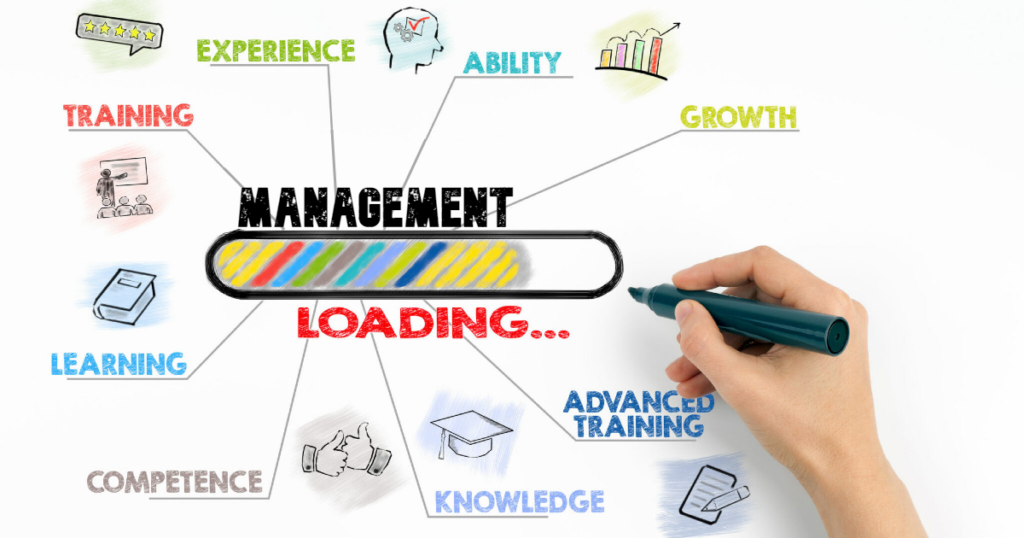
Management skills can be used in any industry or on any career path and they’re a valuable asset for just about anyone looking to move up the ladder. In this article, we will discuss how these skills can help you professionally while also offering some tips for task and project opportunities that may increase your exposure as a manager.
Management is about staying level-headed, thinking ahead and understanding that it isn’t just about yourself. There are always other factors to consider so being able to juggle the big picture with smaller details is also key.
Management is the foundation of every business and industry. It can be used in service, retail or other company types to ensure that projects run smoothly and efficiently which will improve productivity as a whole. Management is also important for those who work independently such as freelancers and entrepreneurs because it allows them to expand their client base by attracting new customers with presentations/speech-making skills while keeping old clients happy through exceptional organisation abilities.
Management skills cannot directly result in profit but they do allow teams to work together seamlessly which enables them to reach their potential as a unit rather than just as individual workers who happen to be on the same team.
In broad terms, management abilities can be anything that allows you to manage people effectively. Although certain talents will vary depending on your line of work, there are several that are common across virtually every job. The following list includes some examples of different types of management skills:
In daily life, we all run into disagreements and conflicts with our co-workers at one point or another. Being able to manage these disputes in a smooth and efficient manner will help prevent them from becoming serious problems and stop them from impacting the productivity of other members on your team.
In the office, school and other types of jobs, communication is a skill that can be used to connect with your colleagues on a professional level. Although there are many different types of communication abilities, the ones that matter most in an office setting are clear speaking skills, active listening and excellent presentation/speech-making abilities.

A person is able to motivate others when they’re able to pique their interest in an activity or task. This can be accomplished through a variety of different methods such as increasing their knowledge on the subject, encouraging them with inspirational messages and demonstrating how this particular project is beneficial to everyone involved.
During our working lives, we are inevitably assigned several projects at once which can range in scope from small to large. This style of management is about being able to control the entire process while also delegating specific tasks depending on your skill set.
In your career, you will need to stay focused in any situation and always be ready to face new challenges when they arise. Being able to change with the times makes it easier to resolve issues that might occur so being adaptable will help you climb the corporate ladder.
Time management is the ability to prioritise tasks effectively, ensuring that everyone on your team gets their jobs done in a timely manner. This allows projects to run more smoothly and meet important deadlines without sacrificing quality or other aspects of success.
Delegation is the ability to assign tasks to team members and prioritise effectively. Depending on the situation, managers may need to choose a certain task or project as their priority for whatever reason – whether it’s due date, budget constraints, etc. – which requires strong prioritisation skills that can help create an effective schedule everyone can work from efficiently.
Leadership is the ability to influence others to achieve a common goal. Leaders motivate their team members through inspiration and encouragement, ensuring that everyone pulls their weight, shares new ideas about how best to move forward with the project and creates an environment where levels of productivity are high.
Professionalism can be defined as the act of conducting yourself in a manner that’s expected of your trade. For example, people who are in the business of customer relations should be able to communicate politely and clearly with everyone they meet while maintaining a positive attitude under all circumstances.

A manager and subordinate can utilise these types of skills to work together on a project that’ll have a positive impact on everyone involved. This includes building strong relationships with team members, giving sound advice and being able to resolve disputes in a professional manner.
Managers who have effective communication skills will be able to convey instructions clearly so there’s no confusion among employees on how something should be completed. Likewise, a manager who’s able to plan and prioritise tasks effectively will be capable of creating an actionable schedule that everyone can use as a guide. This ensures that no deadlines are missed and there’s always time allotted for new elements when they arise during the project’s lifespan.
Subordinates who are good at taking direction will be able to help the team succeed by following specific instructions. The ability to manage time well can prevent people from becoming overwhelmed with too many tasks while also making it possible for them to complete assignments in a timely manner so they don’t miss deadlines or become an inconvenience to clients or other business professionals.
Different types of management skills are ideal for different industries and career paths, depending on the specific requirements or expectations of those areas. For example, managers working in creative fields such as graphic design may require innovative thinking abilities to come up with new ideas while also prioritising effectively so projects can run smoothly without sacrificing quality.
Different types of management skills are ideal for different industries and career paths, depending on the specific requirements or expectations. The most important aspect is recognising how each skill plays into their day-to-day responsibilities within a given work setting and using it to increase productivity. An individual might need management skills in the form of listening and communication while they’re in a more junior role, while someone who’s in management might need leadership skills in addition to delegation abilities. Management is a process that can change and evolve as one moves throughout their career.

Because leadership skills may have different meanings to various people, they are difficult to define. The skills that allow you to effectively talk with others and lead them toward a common objective are referred to as leadership. These skills constitute your personal brand of authority, such as charisma or confidence – characteristics that set you apart in any crowd. This article will explain what leadership skills are, how they can help you achieve your professional goals, and offer some advice on developing them.
Leadership skills are useful because they can help you achieve your career goals. Leadership is the ability to influence others and get them to work together towards a common goal. These leadership skills are important for any industry or job role, which is why it’s so critical that people take time out of their busy schedules to hone these very valuable skills.
While you’re in the early stages of your company, displaying leadership abilities can assist you in gaining clients, investors, and creditors. For example, when meeting clients for the first time, it’s your ability to lead and influence that will help you make a lasting impression on them. When you scale up your business – leadership abilities become even more important because they can be used to manage personnel. Whether you want to become the CEO of your company or manage a team of employees, leadership skills will come in handy in both scenarios.
Many company owners and managers seek leadership abilities in prospective employees. This is because good leaders possess the skills to get anything done, no matter what obstacles are in their way. Understanding the benefits of leadership skills can help you to become a better leader and successfully guide your subordinate towards success.
Leadership is a complex skill that incorporates many different talents. Some examples of skills that make a strong leader include:
A good leader knows that a project can’t be done overnight, and is able to patiently guide their employees through the process. To guide an employee through the project, good leaders must be able to understand that mistakes will happen along the way. They also need to know how to help that employee fix their mistake without it affecting the entire process.
Patience is not an easy skill to learn; however, if you’re naturally patient and can put up with setbacks (and even acknowledge them), then you’re more likely to succeed and become a better leader.
No one wants to work for someone who constantly complains about everything or shows signs of negativity. A positive attitude helps you appear more approachable as well as contribute towards your team’s morale.

A good leader knows how to motivate their employees, which keeps them engaged and interested in the work they’re doing.
No one wants a company that’s stuck in the past; creativity is important for modernising your business or project.
As an employee or employer, you will be confronted with many conflicts. A good leader knows how to resolve these conflicts in a productive and timely manner.
A good leader knows how to empathise with their employees and understand the challenges they face.
A good leader is an active listener, which helps them better understand their employees and resolve issues efficiently.
A good leader is someone that employees can trust.
A good leader will do whatever it takes to see a project through from start to finish, which helps them gain the respect of their team members.
Making swift choices with authority.
A good leader knows how to persuade employees into following their vision and mission.

Attending to the needs of other individuals, like empathy for their feelings.
Communicating well, either verbally or in writing. Being able to work well with others is an important leadership skill that can help you succeed in your career.
Having the ability to think creatively about businesses or projects will allow for innovative ideas.
Leaders should be able to prioritise their time, especially when it comes to communication.
A good leader knows how to teach and lead by example.
Being ready for unexpected projects or tasks that need to be done immediately.
Putting other people’s needs before your own, prioritising their ideas over yours.
Leaders should have a strong sense of achievement in order to feel successful.
By demonstrating leadership abilities in your company or career, you can pave the way to success. Leadership skills help you be a better leader and guide your employees towards accomplishing goals, which will help elevate your business. In any company, leadership is important for gaining respect from co-workers as well as clients.

To sharpen these essential skills, it’s helpful to take on new projects that push you outside of your comfort zone.
It can also be beneficial to take on small tasks and projects around the office, as they allow you to show off these abilities in a more practical way. For example, small task like organising meetings or events allow you to demonstrate leadership qualities like teamwork and reliability, which are important for moving up the career ladder. This will help develop leadership skills naturally over time, allowing employees or employers with this ability to become invaluable assets to any company or industry that needs them.
Depending on the industry you choose, certain types of leadership skills will be more beneficial to your career. For example, an art director may benefit from creativity and visionary thinking while a public relations representative would need active listening or persuasion abilities.
Career paths that can use these specific skill sets include marketing/advertising, business, public relations, event planning, real estate and human resource management.
While these essential traits are a good start for becoming a successful leader, there are also a number of other ways that can be helpful in elevating your career as well. A few of these include:
The first way an individual can grow their leadership skills is by taking on projects and tasks around the office that help develop those abilities over time. If there are no task options available, employees should take it upon themselves to volunteer for these kinds of roles. This will demonstrate a willingness to learn and be a team player, which can help develop leadership skills.
Next, find resources like books or podcasts about leadership and learn as much about them as possible. Many books on the subject exist, such as “On Becoming a Leader” by J. Warren Bennis. It’s also beneficial to use online resources, such as e-books or articles that summarise the main points of leadership. These will help you understand it in a more practical way.
One can also participate in leadership training programs or seminars as well. You can find both in-person and online courses that allow you to grow your leadership skills.
Leadership skills are essential in any career, but they can be particularly important for those who want to become better leaders. Understanding the different types of leadership skills and how they work will help you take on new tasks or projects that push you outside of your comfort zone. It’s also beneficial to use online resources like e-books about leadership as well as participate in seminars and training programs available both in-person and online.
Leadership skills should never stop developing, so it’s a good idea not only to read up on these topics but also stay abreast with current events related to management/leadership through podcasts or books. With a little time invested into understanding yourself more fully, taking charge of your own development journey and staying open minded, you’ll find that your leadership skills will grow exponentially over time.
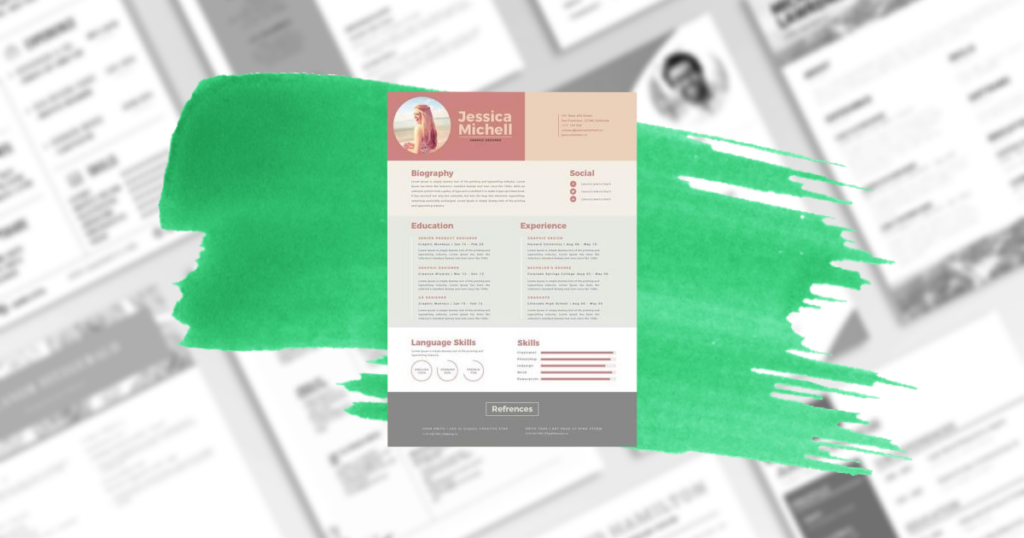
Your resume is a marketing document that you create to persuade a hiring manager or recruiter that you’re the best candidate for the job. A powerful way to achieve this goal is by using action verbs in your resume, which will make it stand out from the crowd of other applicants. In this post, we’ve compiled 100 words to use in different situations, so that you can be sure your resume stands out.
An action verb describes what the subject is doing. They’re essential to a strong resume since they may be used to add emphasis to a phrase in order to provide relevant and important information. Using action verbs can make your resume stand out from the crowd, as action verbs add energy and vitality to the descriptions which further strengthens your candidacy for the job.
Below are some phrases that can be found on a professional (or entry-level) resume with the corresponding action verbs:
A general resume would be as such “Delivered presentations to clients and management.” But with the use of better action verbs, “Prepared, delivered and summarised presentations for clients and management.”, there’s more emphasis on presenting information as well as summarising it with a stronger verb instead of just describing what was done. In some cases where you’re not sure if you should use action verbs, you can always remove the description and see if it still makes sense.
Here are a few more examples:
Action verbs extend your writing to be more compelling than just a list of duties, responsibilities and skills. They also serve to answer the hiring manager’s questions “So what?” and “What did you do?”.
The following list contains action verbs in different situations that can be used when writing your resume or cover letter. The groupings display action verbs in tasks that are often used within specific career fields.


It’s important to be cognizant of the words you choose when writing your resume. Action verbs and active voice make a significant impact on how people perceive your resume, so it’s worth the extra time to make an impression. You can improve your chances of getting an interview by demonstrating what you have accomplished in past positions or projects that demonstrate why they should hire you for theirs. Whether you’re looking for a new job or are just updating yours, this list will help get those creative juices flowing!

Job seekers often feel anxious when it comes to the interview process. The STAR method is a strategy that helps remove some of this anxiety, by providing job seekers with a framework for structuring their thoughts and responses in an interview. This article will cover what STAR stands for, and how you can use it to rock your next interview.
The STAR Method is an acronym that stands for Situation, Task, Action and Result. It’s a framework for structuring your thoughts and responses during the interview process so you can communicate what it takes to rock this role. The result of using the STAR method in interviews is one where hiring managers get a complete picture of you as a candidate and feel confident about your ability to do the job.
STAR is a great way to structure your thoughts, which can help you to provide more concise and complete answers. But it’s also important that the STAR Method doesn’t make an interview feel like a job application form. Here are some tips on how to get the most out of this strategy without overdoing it:

Situation: My ability to communicate ideas fluently and effectively has always been one of my greatest strengths.
Task: When I’m working with a team, the first thing I do is make sure everyone understands what they need to accomplish during our project or assignment, which allows us to work more efficiently.
Action: Then, if there’s someone who isn’t clear about something specific within their role, I take time after hours (or at lunch) so that we can discuss it further until it makes sense for them – even if this means staying late).
Result: This approach not only helps me build relationships with others on my team because they know how much value I place in making sure that everyone understands their tasks, but it also ensures our team is able to reach its goals.
Situation: I tend to be a perfectionist, which means that while it can be helpful when working on detailed projects or assignments, sometimes this tendency makes me work longer than necessary.
Task: Working on improving my own timeframe for completing tasks and focusing more of my attention outside of the office has helped me become more efficient in how I use my time at work.
Action: For example, if we’re using task management software like Trello- instead of just checking off what’s left over from our list every day after hours, I’ll find ways to help with other things within the company so that everyone wins.
Result: In doing this, not only have I been able to make sure all of our team members’ needs are met more efficiently, but I’ve also helped the company save time and money.

Situation: When the company I worked for was acquired by a larger corporation, my role changed from working on independent projects to collaborating with other teams.
Task: Collaborating with others didn’t come naturally at first, because I never had to do it before. However, thanks to all of the great training we have here, I learned how important teamwork is and became an effective team player.
Action: Now, even when there are challenges that arise during this process or some people aren’t as open to collaboration as others initially were, they’ve been more receptive since seeing me be so flexible in my approach.
Result: Because of this attitude adjustment within our department overall, we’re able to complete projects more efficiently than ever before.
Situation: When I first started my career as a software developer, I made a lot of mistakes because the code I wrote wasn’t very efficient.
Task: Because of these challenges, I decided to enroll in a coding course online and started doing side projects at my job after hours.
Action: After several months, I was able to drastically improve the performance of my code, which is what allowed me to earn more responsibilities within our team.
Result: As a result of this experience, I learned how important it is for problem solving. So now if something doesn’t work right away during an assignment or project at work, I don’t get discouraged because that’s not uncommon. Instead, it motivates me even more so that next time things will go smoother.
STAR is a method for answering interview questions. It stands for Situation, Task, Action and Result. With this, it allows you to answer any question with depth and provide an example of your skillset in action while showcasing the results that it achieved. With this approach, you can show how you think critically about problems and take initiative when necessary- which are two qualities that employers love. Practice using this technique by working through some examples from the list. Then, see how well you do in a real interview. You may be surprised by how well you can answer questions using the STAR method.

If you’re looking for a job, it’s important to be ready for the interview. Not only should you have an idea of what the company does and how your skills could help them, but also how to respond when they ask about your strengths and/or weaknesses. For this type of question, there are plenty of answers that can put you in a positive light while still showing that you’re human! In this guide, we’ll outline 30 killer responses so your next interview is a success.

Bragging too much is not advisable, you’ll just sound very self-satisfied and with an exaggerated sense of self-worth. Let’s try to avoid that. Some examples of strengths include:

It’s critical to remember the following as you prepare your response to the interview question “What are your strengths and weaknesses?”
Turn your flaws into difficulties you’ve overcome and your strengths into why you’re a fantastic fit for the job when you prepare your replies.
Good luck for all those interviews!

When you’re working abroad, it can be difficult to calculate what your nett pay will be. There’s a lot of information about gross pay and deductions from gross pay. In this article, we break down the differences in gross vs nett pays for these countries: Singapore, Malaysia, Hong Kong, Vietnam, Philippines, Indonesia and Thailand. We also give some advice on how to best deal with taxes in different countries.
Gross pay is the amount that you’re paid before any deduction or tax. This would include your salary, allowances, bonuses and overtime payments.
Nett pay is what you will receive after all deductions have been taken out of your gross pay. Common examples of deductions include taxes, insurance premiums (health), social contributions etc. These factors make up for your ‘take home’ income which means how much money you actually get to keep in hand per month/ year.

In Malaysia (residents and non-residents) it works slightly differently where you will need to contribute to Employees Provident Fund (EPF), Social Security Organisation (SOCSO) and monthly tax deduction. The EPF was established to help employees save for a comfortable retirement by making voluntary contributions to the fund. You have the option of contributing at least 9% of your gross salary each month.
Employees who make contributions to SOCSO qualify for financial compensation in the case of work-related injuries and travel. For tax deduction, if your yearly employment income is more than RM34,000 (after EPF deductions), you must register a tax file and your employer may take a sum from your pay for monthly tax deduction payments.
Lastly, for yearly tax payments, employees in Malaysia will have to submit yearly reports of gross pay earned during that year which includes foreign employment too. You will then be taxed accordingly, this is usually between 0-30% (If this amount exceeds the total monthly tax deduction, you will have to pay the balance amount in a lump sum at the end of the taxation year).
Here are some important details for deductions and tax rates.
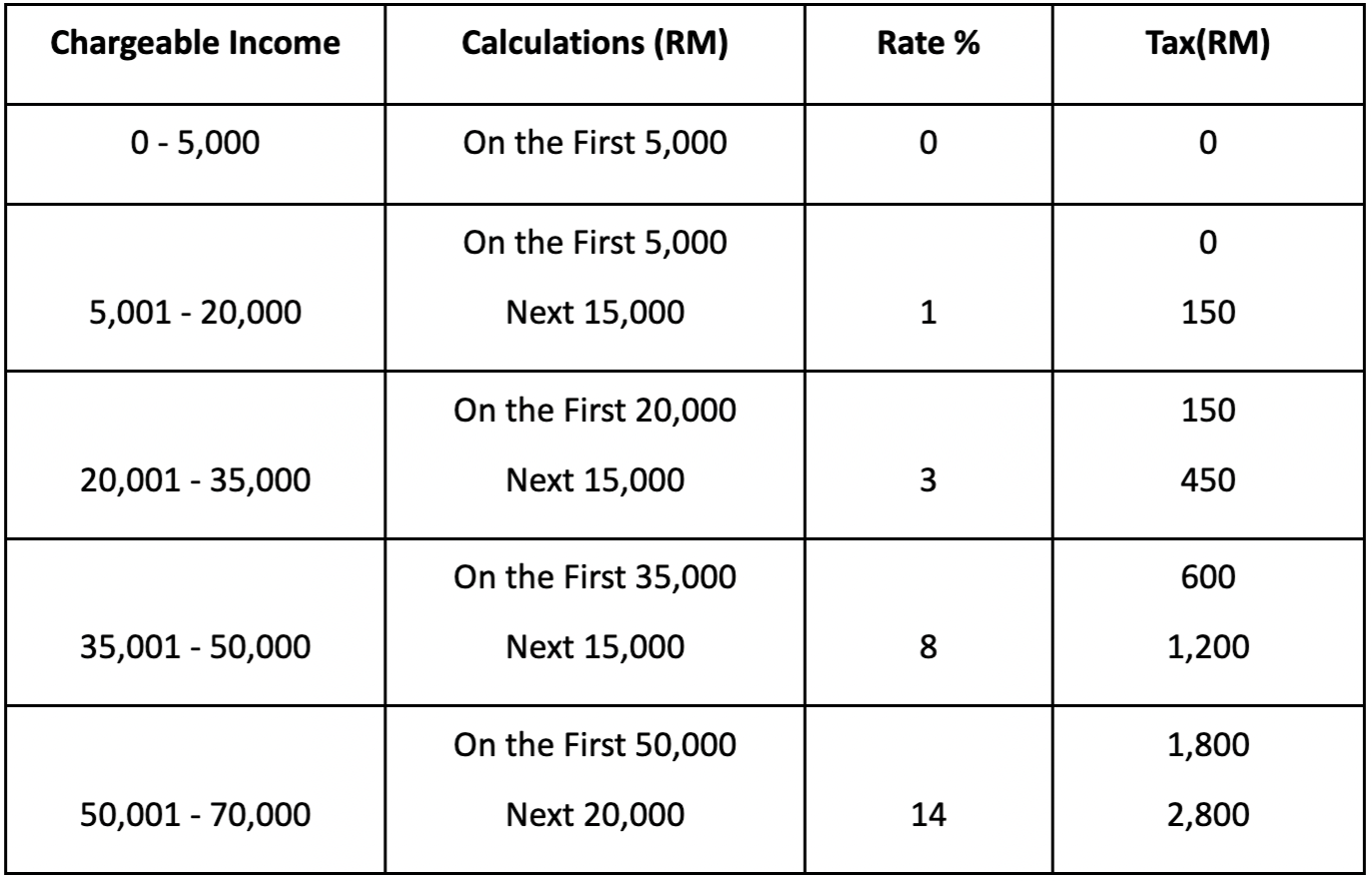
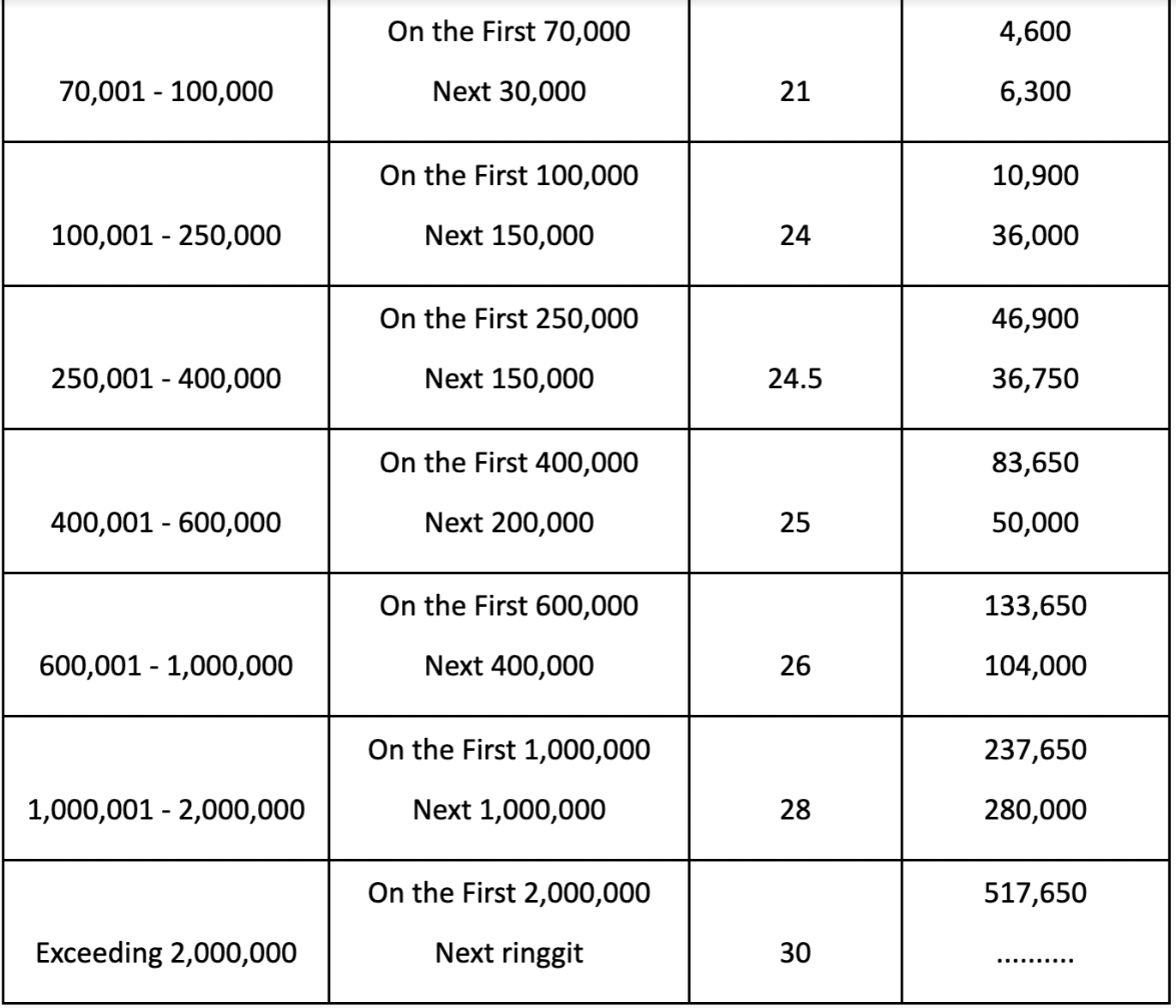

Hong Kong, as a tax haven, has especially competitive income tax rates for non-residents and company taxes. Besides tax, employees and self-employed people must pay 5% of their wages to their MPF fund (Mandatory Provident Fund). Expatriates are not subjected to MPF if they enter Hong Kong to work for less than 13 months, or if they are members of an overseas retirement system.
Individual tax rates are progressive, with the net chargeable income (i.e. assessable income after deductions and allowances) taxed at a rate of 2% and up to 17%. Hong Kong’s tax system is based on a territorial principle. This implies that only income earned in Hong Kong is taxable there. However, income that has been taxed in another jurisdiction may be excluded from the salary tax in Hong Kong, and earnings earned outside of Hong Kong can also be considered non-Hong Kong sourced (exempted from Hong Kong salaries tax). Hong Kong salaries tax does not apply to income earned in the city by visitors who spend less than 60 days there.
Here are some important details for deductions and tax rates. This is a list of what you need to do if filing your taxes this year, so make sure that it’s in order!
i. Master Trust Schemes

ii. Employer-sponsored Schemes
iii. Industry Schemes
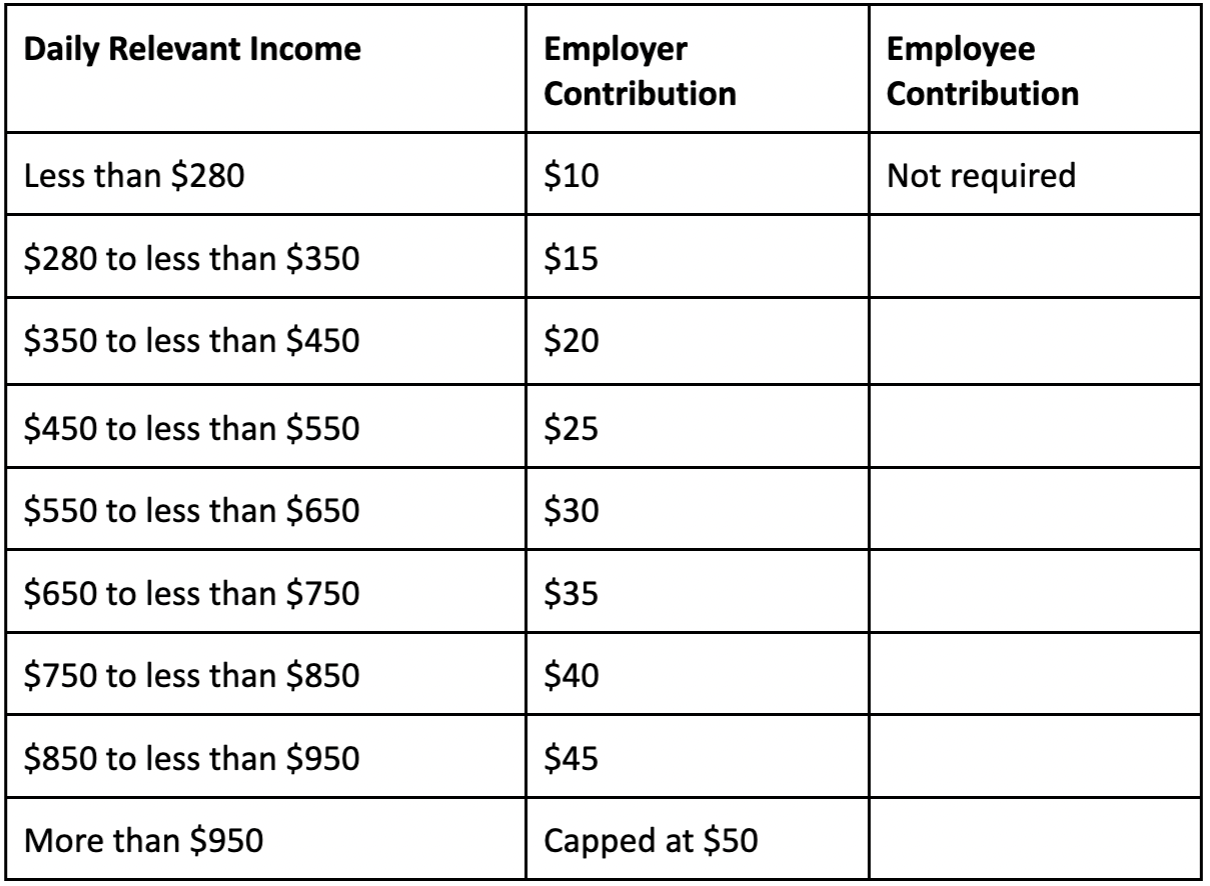
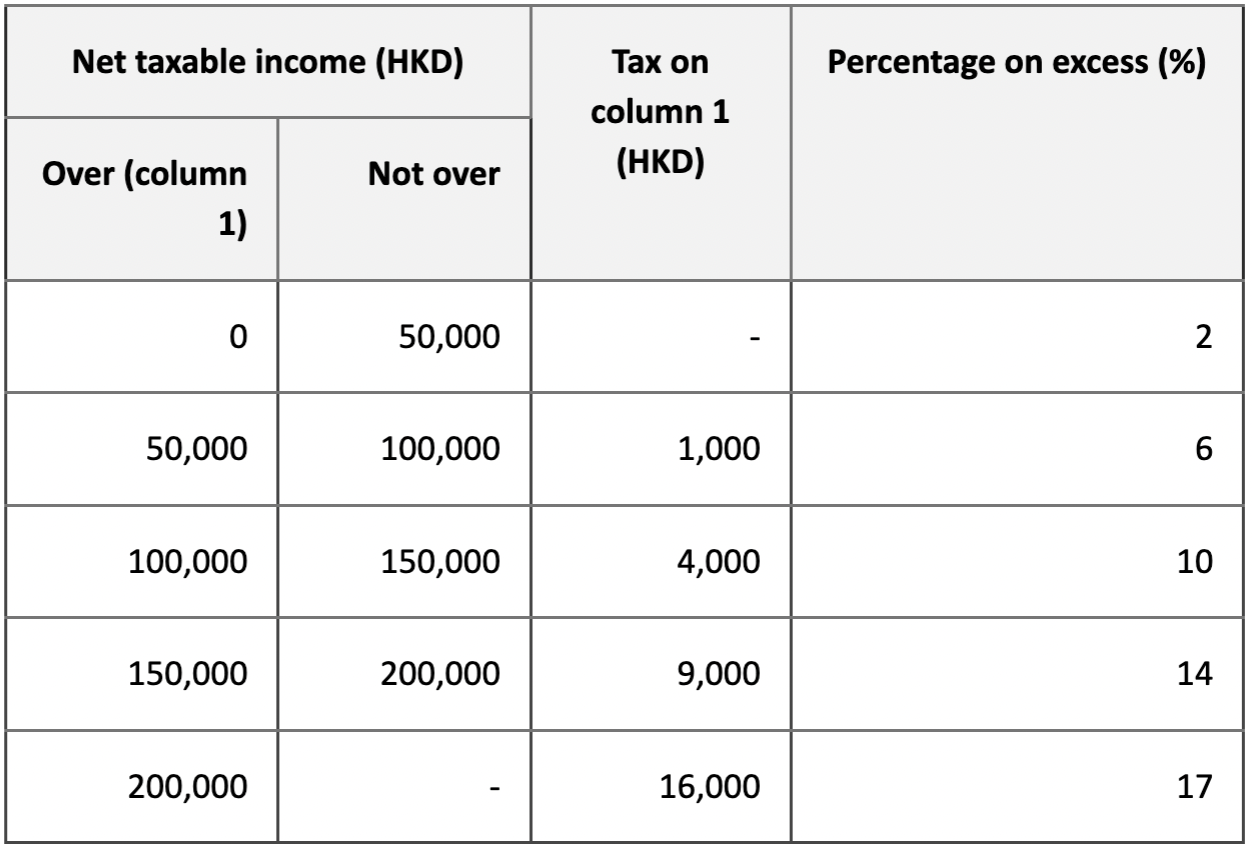

All Vietnamese citizens, including foreign workers who have resided in the country for more than six months, must contribute to the three systems. The following percentages must be paid by the employee: Social insurance (8%), health insurance (1.5%) and unemployment insurance (1%).
In Vietnam, Residents of Vietnam are taxed on their worldwide income, whereas non-residents are taxed on their Vietnam-sourced earnings only. The highest tax bracket in Vietnam is 35%, while taxes for non-residents are levied at a flat rate of 20%. Foreign currency income is converted to Vietnamese dong when calculating taxable income.
Here are the important details you need to know about deductions and tax rates.
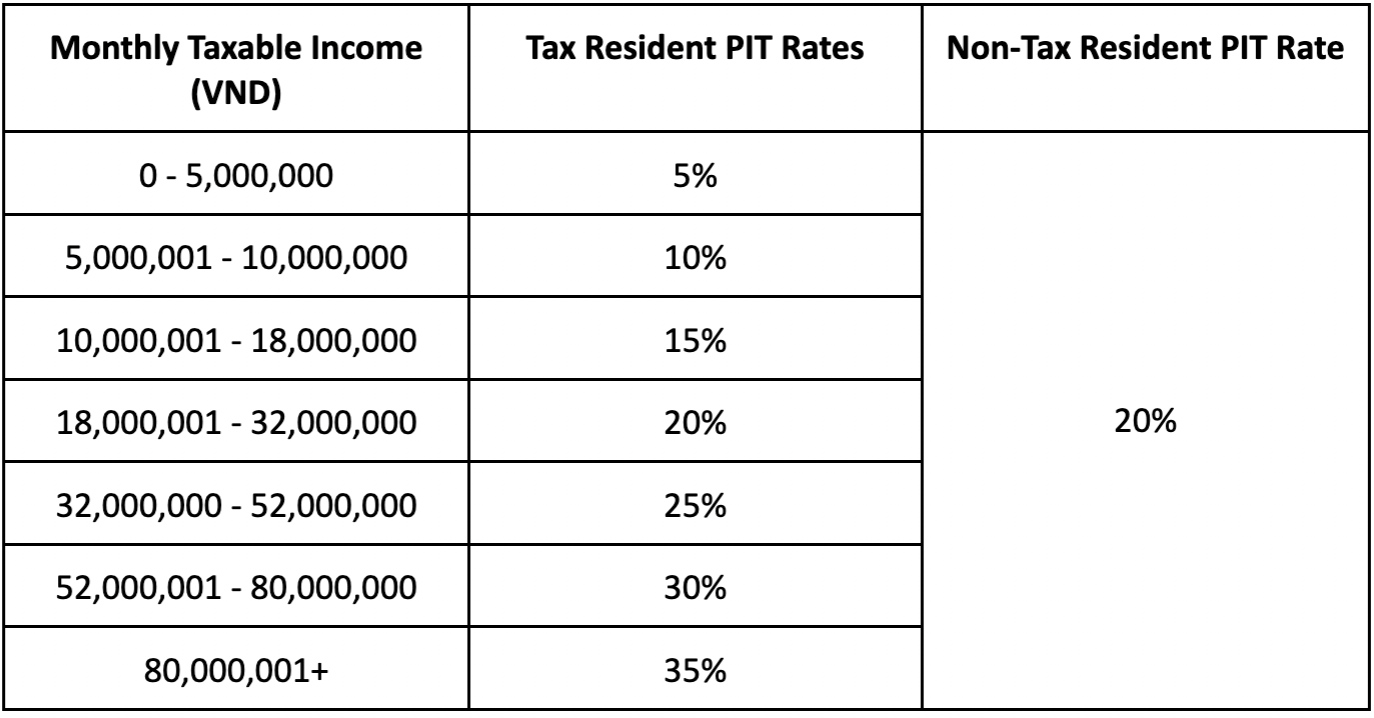


The Social Security System (SSS), the Home Development Mutual Fund (Pag-IBIG), and the Philippine Health Insurance Corporation (PhilHealth) provide social welfare services in the Philippines. Employers and employees are obliged by law to contribute to these organisations via payroll deductions as required by the Philippine Labour Code. The SSS contribution is 3.63% of an employee’s monthly salary. The Pag-IBIG fund has a monthly fixed contribution of ₱100. The employee’s wage is used to calculate the employee’s PhilHealth contribution. The employer must pay half of the premium and 50% of the monthly instalments will be taken out of the employee’s salary. The basic salary range is from ₱10,000 to ₱50,000 per month, which equals the minimal deposit of ₱275 and the maximum deposit of ₱1,375 each month.
The Filipino government taxes its citizens up to 32% no matter what their income is, regardless if it comes from the Philippines or not. Non-Filipinos are only taxed on any wages that have been earned while living there.
The deduction and tax in the Philippines is a complicated system, but it’s important for you to know the basics. Here we will break down your deductions and rates so that they make sense in context!

*due to Covid-19, the social security contributions will be at 12% for the meantime with the approval from The House of Representatives
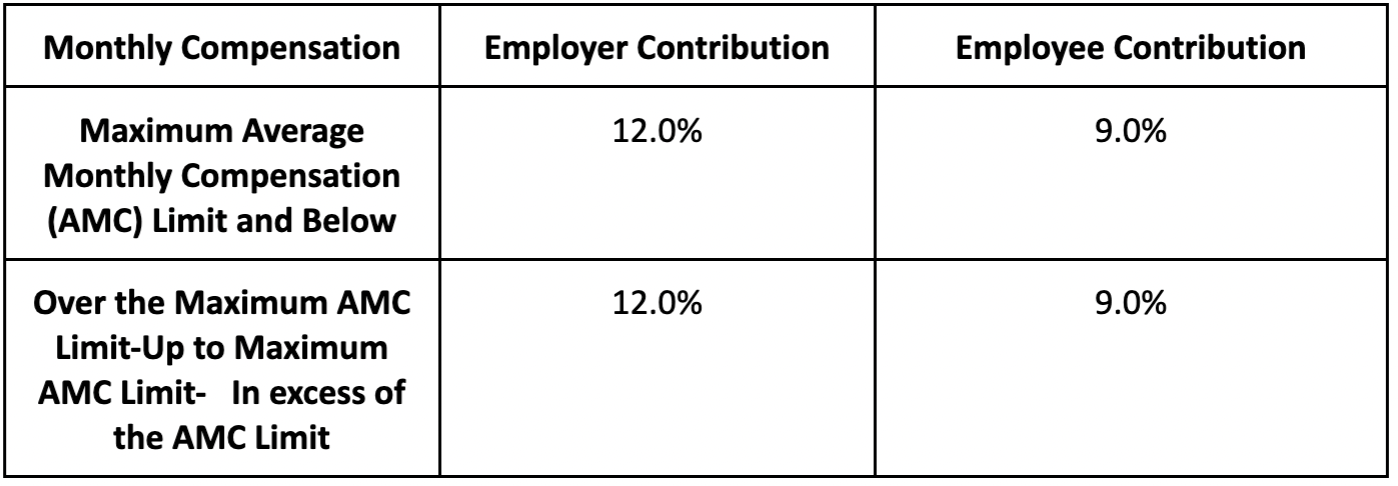
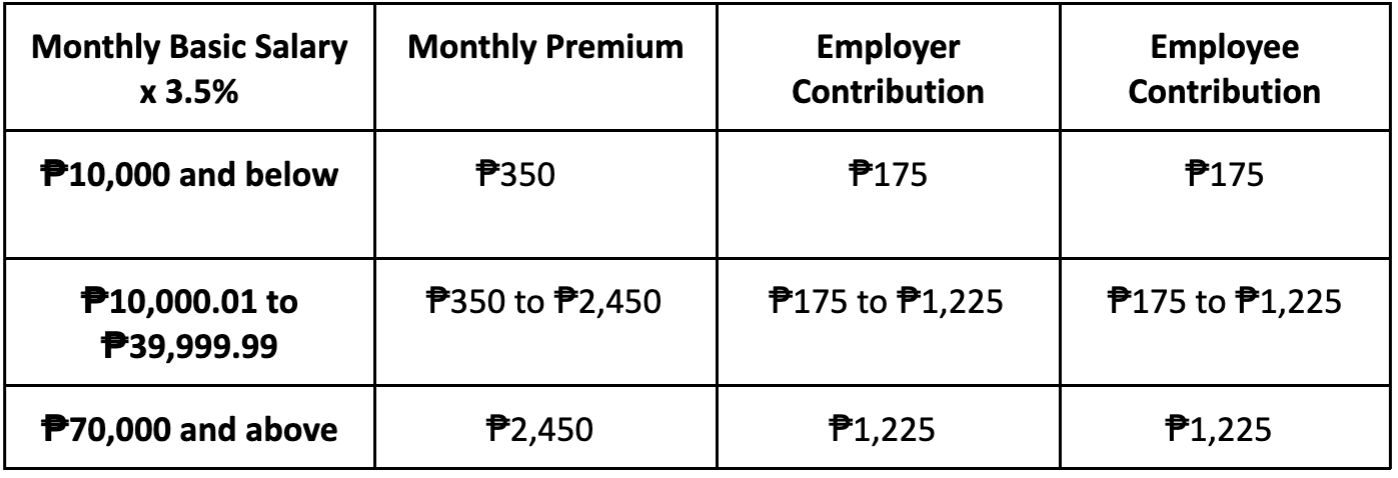


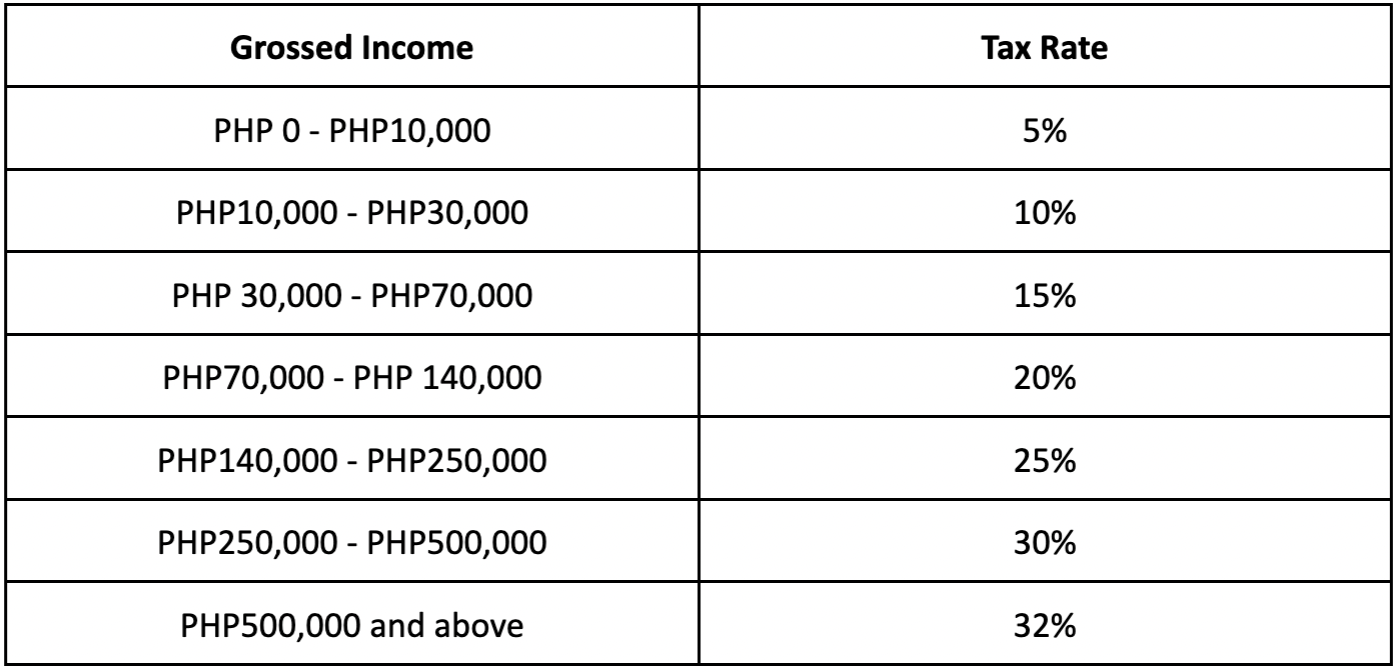

In Indonesia, social security contributions are made in three different areas: Old age contribution (2%), healthcare (1%) and pension (1%).
Resident citizens in Indonesia are taxed on their worldwide income, whereas non-residents are only taxed on locally sourced earnings. Non-resident employees are taxed with a general withholding tax of 20% on their income source within Indonesia.
Here are the important details you need to know about deductions and tax rates.





In Thailand, foreigners who don’t have an employment visa or work permit can only stay in the country for 90 days at one time before having to leave to renew their visas. If you’re staying longer than this then you will have to pay Thai personal income tax for the amount of time that exceeds 90 days, regardless of your salary is paid in Thailand or not.
There’s also a maximum allowance on what can be taxed but it varies depending on where you’re working and how much money per year is earned. Thailand has very high rates of taxation where foreigners who earn more than 800,00 baht/year automatically need to pay 30%. However, if they’re married to Thai nationals or earning less than that could get away with paying only 20%. Employees are also required to contribute 5% of their pay to Employee Social Security. The maximum monthly payment is 750 Baht.
Here are the important details you need to know about deductions and tax rates.

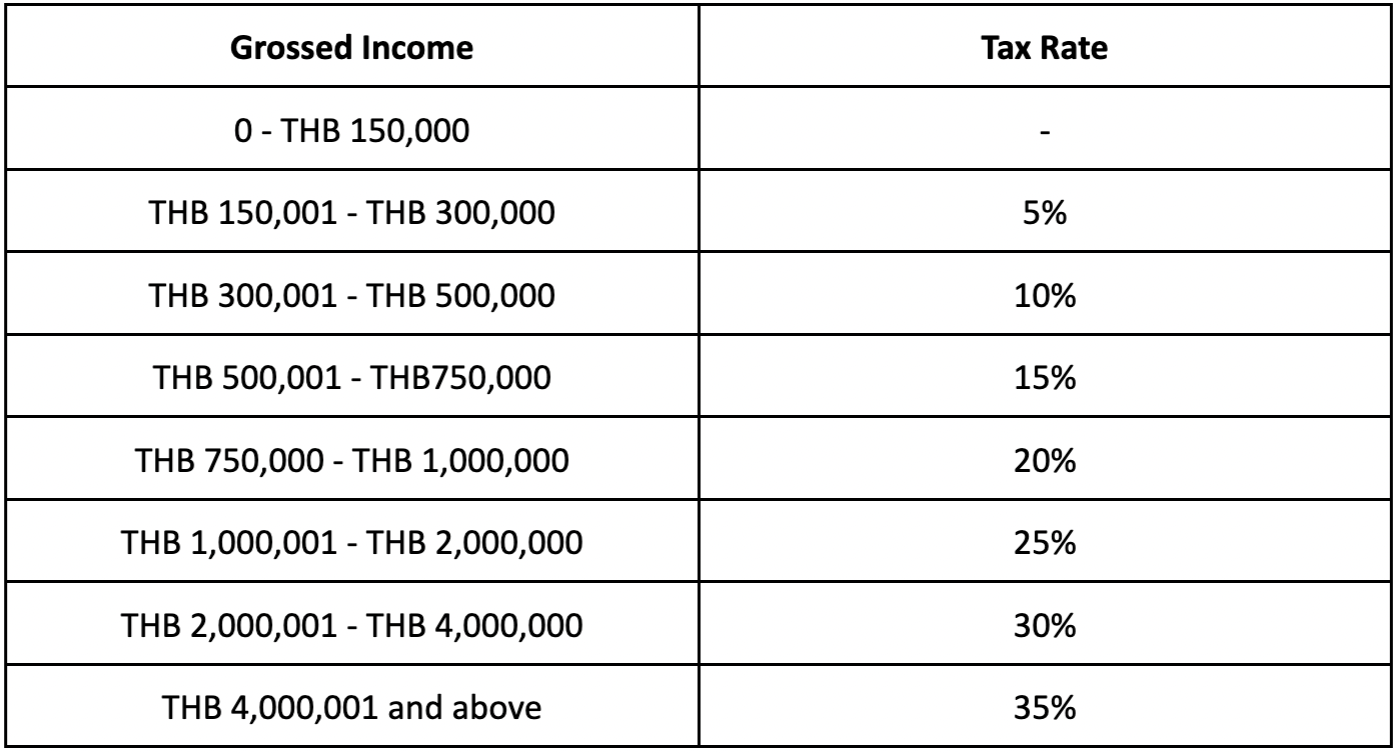
This would include:
There are several factors that can influence your take-home pay such as income tax, health insurance premiums, social security contributions etc. There isn’t too much of a difference in the amount you will receive if you were to compare gross vs nett pays with some examples listed above. However, we recommend getting advice from a tax consultant or accountant so they can help you understand how it works in your destination country. There’s no ‘one size fits all’ model when it comes to dealing with taxes and salary calculations for different countries, so working closely with a tax consultant or accountants would be the best way to go about it.
Some people think that it’s better to be paid on a gross basis as this means they will receive more money but the reality is often very different from what you might expect. Taxes and other deductions can make up for 50% of the total income which leaves you with little savings over time. No matter where in Asia or the world, always remember to keep track of all your expenses so that when tax season comes around again, you know exactly how much taxes need to be paid. We hope this article has been helpful by breaking down some differences between Gross vs Nett pays across a few different countries.

As you may have noticed, it’s become increasingly difficult to find a job. Many hiring managers are using AI and trained recruiters to sift through piles of resumes in order to find the perfect candidate for their company.
Unfortunately, if your resume doesn’t appeal to these technologies then you will be disqualified before human eyes ever get a chance to see your qualifications. So, how do you write an e-resume that’s attractive to both man and Applicant Tracking Systems (ATS)? We’ve compiled 10 tips that will help make sure yours is able to speak both languages!
One way to make sure your resume is attractive, is to use a simple font. Try not to use too fancy types! Arial or Helvetica are great options because they’re small and easy to read fonts that don’t take up much space on the page. Another tip would be to use a font size between 11 and 12.
Another way to make sure your resume to include keywords that speak directly into the requirements of the job position you’re applying for. For example, if you’re applying for an administrative assistant role then include words like “attention to detail” and “organisational skills.” If you’re applying for a sales position, include words like “motivated,” “sales experience,” or “negotiating.”
This should go without saying, but do include education in your resume when possible! Studies have shown that people who receive higher education are more likely to find a job. They also tend to receive higher salaries and have lower rates of unemployment than those who did not attend college or get an advanced degree. So make sure you include your educational background in the education section of your resume!
Include references upon request on your resume! Most companies will ask for references when they’re hiring someone new. It can be a bit of an inconvenience to have recruiters call your previous managers in order to get the information needed about you, so it’s best if this is already included on your resume!

Another tip would be to include a link on your resume. If you have an online presence that’s related to the position that you’re applying, then try including links to it! LinkedIn, for example, allows users to connect their profiles with potential employers which can help strengthen your candidacy when looking for jobs. As another option, use a portfolio website to display your previous work and accomplishments.
Make sure that there are no grammatical errors on your resume! Nothing is worse than a recruiter or hiring manager having to read through pages of an error-riddled document. So make sure you check over it one more time before submitting it for consideration.
Include all relevant work experience and volunteer experience in the “Work Experience” section of your resume! When you’re trying to get a job, it can be tempting to forget about any experience that doesn’t relate directly to the position you’re applying for. But this isn’t an effective strategy because recruiters will appreciate knowing everything they can about their applicants, even if it isn’t directly related to the job they’re hiring for. So make sure you include any work experience or volunteer experience in your resume!
In order to make sure your resume is attractive both man and ATS is to make sure your resume has an appropriate length. If you’re applying for a position that requires minimal experience, then it should only be one page long! However, if you’re looking to apply for positions with more responsibility (or higher salaries), then your resume should probably be two pages long at least. This will give the recruiter more information about you and your achievements.
Another tip to make your resume more attractive is to use bullet points! Bullet points are excellent ways of listing off information quickly while also making it easy for ATSs to pick up on. So if you have a lot of key takeaways about yourself that would be helpful in the decision making process, then consider using bullet points. List accomplishments and phrases on your resume rather than just focusing on responsibilities and duties of past jobs. Try writing some bullet points with keywords like “Increased revenue by X%” or “Managed team of Y people, resulting in Z% increase.” This will help give readers specific examples of how their company can benefit from bringing you aboard!
Last tip to make your resume more attractive to both man and ATS is to proofread your resume one more time. You don’t want to miss any typos or grammatical errors. It will reflect poorly on the quality of work you produce and it can also be distracting for recruiters, so make sure that everything is perfect before submitting your application!
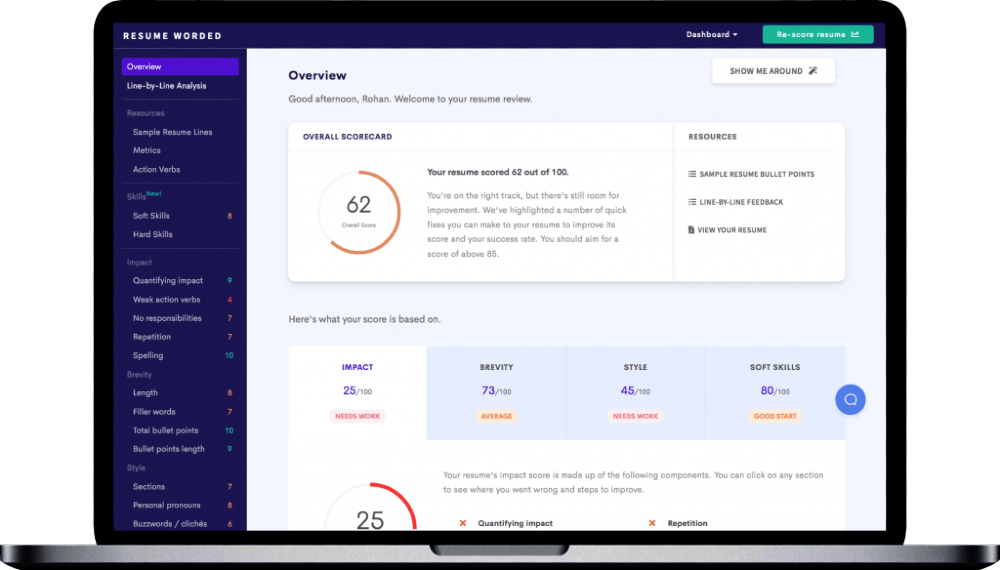
Once you’ve finished writing your resume, it’s advisable to test your resume with an AI. One really cool thing about the internet is that there are a lot of resources available to help you with this process, such as Resume Bot. This service will grade your resume and tell you what you can do in order for it to be more appealing.
You see, in this age of AI, recruiters are more likely than ever before to be scanning your resume for keywords and key takeaways about you as well as evaluating its overall appeal. After reading this article, hopefully, you now have some helpful strategies in mind that will make your resume stand out from the crowd. We hope you found this article helpful, and good luck!

Every interview is an opportunity to show your potential employer that you’re the best candidate for the job. The problem is, many people go into their interviews unprepared, and end up making a bad impression.
Practice is one of the most important things you can do to prepare for an interview. Practice answering questions with a friend, family member or alone so that when it comes time for your real interview you’re prepared.
Doing research on the company will help you answer any question they may ask about who they are and what they do. You can also ask questions that pertain to the company so you look interested in them. For example, if you’re interviewing for a company that makes sports equipment, ask about their newest line to show your interest.
Take some time before your interview to look over the job posting. This will ensure that you’re aware of all the responsibilities for this position, and can answer any questions they may have about what is required from you, if hired.
Before going into an interview always prepare at least two answers for each question your might be asked during a job interview. This way, you’re prepared for any question they may have and can give them an answer when asked, which will leave a good impression on the interviewer. For example, if they ask you, “Where do you see yourself in five years?“, you can give them an answer such as “I hope to still be learning from this company and growing within the position I’d been hired for.”
Take time to prepare a list of references the company can contact if they’re interested in you. These should be people who know your work ethic and can vouch for your character.
Take time to prepare examples of your work that you can talk about if asked. You want to make sure these are the best examples possible, and will show a potential employer why they should hire you. Consider portfolios, any previous work experience, activities with friends/organisations, or volunteer jobs you’ve held in which you’ve demonstrated competence and success.

When you’re preparing for an interview make sure to wear appropriate interview attire. This will ensure that you give off a professional appearance and can impress your interviewer.
If you wear perfume or cologne, try to go light on it. You want your interviewer to focus of what is being said, and not on the overpowering smell coming from you!
When you’re preparing to go into an interview, try to plan your day so that you can arrive about ten minutes early. This will allow for any unforeseen problems, and give you some buffer time if the traffic was bad on the way there or other issues arise.
If possible turn off all electronic devices before going in for an interview, including cell phones. If not able to do this make sure they at least have their ringer turned off so it does not interrupt during speaking with the interviewer(s). It’s also best if these items are put away completely out of sight where others cannot see them either.
Make sure you bring copies of your resume, a notebook and pen, and the reference list if it’s requested. You want to make sure that everything they may need from you during an interview is ready for them. This will leave a good impression on the interviewer because they won’t have to ask for these items.
Be sure to look your interviewer in the eyes when speaking with them and not at the floor or ceiling. This will show interest in what they’re saying and can help you connect better with them which could give you an edge over other applicants who don’t do this during their interview.
Try your best to avoid fidgeting during the interview. This includes things like playing with a pen, touching your face or hair repeatedly, and crossing and uncrossing your legs. All of these are signs that you may not be interested in what is being said which can give off an unprofessional vibe to potential employers. Also try not start out by saying “um” before every sentence when speaking because this will show hesitation which could make them think twice about hiring you for their position.

It’s important to be polite and have good manners when speaking with your interviewer. This includes things like saying please, thank you, if you don’t know the answer just tell them that instead of making something up or avoiding the question all together. Other things to include are having good posture, making eye contact when speaking with them, smiling naturally instead of forcing it because you think they expect it from you.
When arriving at the business where you’re interviewing, it’s best to be friendly but brief with staff members. This will show that you can maintain a professional appearance while still being personable and not standoffish. Allow your interviewer(s) to guide the conversation, don’t feel pressured to fill silent gaps in dialogue.
If there’s silence during an interview try not to feel as though you have to fill this gap by speaking or asking unnecessary questions. It’s okay if sometimes these moments happen so just let them occur naturally without feeling pressure from yourself or others present for this time period of quietness.
Maintain your composure if the interviewer asks difficult questions. If at any time during an interview the interviewer asks a question that is very personal try your best not to react negatively in anyway. If needed take a moment or two before answering so that you have enough time to collect yourself and answer their question without being too emotional about it. This will leave an impression on them for showing responsibility by thinking through what could be considered as hard times in life.
If your previous employers are brought up during an interview it’s best to not speak negatively about them because this could leave the interviewer with a bad impression. Instead of talking badly about these people try focusing on what you learned from them and how they helped prepare you for where you want to be in this new career path instead.
Stop yourself if feelings come up that may make it obvious that something has made you angry or sad. If any negative emotions come out while speaking, stop right away and wait until things have cooled off before continuing with your answer or question. This will give the interviewer(s) better insight into who you really are as a person when put under pressure which can show if someone would be able to handle working in certain situations at a company.

At the end of the interview, when an interviewer is finished asking their questions it would be best to ask them about next steps in this process. This will make you seem interested in what they’re doing, which could lead them to think that you might be a good fit for their company if all goes well after your second visit with them at some point down the road.
After an interview has taken place it’s good to send a follow up thank you letter to the interviewer(s). Make sure this note is personalised and not something that was generic because there are many people interviewing for one position. Include things like what stood out most about them during your meeting, why you think they would consider hiring someone like yourself for their company, anything interesting or important that happened throughout the course of the visit with them on this day which could have made a lasting impression upon them as well.
Interviewing for a new position is an exciting time in your life (your resume/CV were one of the selected few to catch the eye of the recruiter!). To make the most of this opportunity, it’s important to be prepared and put forth your best self so that you can land the job offer. It may seem like a daunting task, but with these interview tips, you’ll have everything you need to ace your next interview.
From making yourself memorable by using body language cues or being friendly when greeting staff members upon arrival, to getting off on the right foot all the way through to following-up after receiving feedback about how they think things went during your visit, we’ve got you covered.